Related Research Articles
The Employment Non-Discrimination Act (ENDA) is legislation proposed in the United States Congress that would prohibit discrimination in hiring and employment on the basis of sexual orientation or, depending on the version of the bill, gender identity, by employers with at least 15 employees.

The rights of lesbian, gay, bisexual, transgender, and queer (LGBTQ) people in the U.S. state of Utah have significantly evolved in the 21st century. Protective laws have become increasingly enacted since 2014, despite the state's reputation as socially conservative and highly religious. Utah's anti-sodomy law was invalidated in 2003 by Lawrence v. Texas, and fully repealed by the state legislature in 2019. Same-sex marriage has been legal since the state's ban was ruled unconstitutional by federal courts in 2014. In addition, statewide anti-discrimination laws now cover sexual orientation and gender identity in employment and housing, and the use of conversion therapy on minors is prohibited. In spite of this, there are still a few differences between the treatment of LGBTQ people and the rest of the population, and the rights of transgender youth are restricted.

Equality Utah is an American non-profit 501(c)(3) organization which is Utah's largest LGBT rights group based in Salt Lake City, Utah. The organization is a member of the Equality Federation.
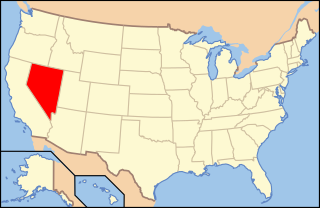
Lesbian, gay, bisexual, transgender, and queer (LGBTQ) people in the U.S. state of Nevada enjoy the same rights as non-LGBTQ people. Same-sex marriage has been legal since October 8, 2014, due to the federal Ninth Circuit Court of Appeals ruling in Sevcik v. Sandoval. Same-sex couples may also enter a domestic partnership status that provides many of the same rights and responsibilities as marriage. However, domestic partners lack the same rights to medical coverage as their married counterparts and their parental rights are not as well defined. Same-sex couples are also allowed to adopt, and state law prohibits unfair discrimination on the basis of sexual orientation and gender identity, among other categories, in employment, housing and public accommodations. In addition, conversion therapy on minors is outlawed in the state.

Lesbian, gay, bisexual, transgender, and queer (LGBTQ) people in the U.S. state of Wyoming may face some legal challenges not experienced by non-LGBTQ residents. Same-sex sexual activity has been legal in Wyoming since 1977, and same-sex marriage was legalized in the state in October 2014. Wyoming statutes do not address discrimination on the basis of sexual orientation and gender identity; however, the U.S. Supreme Court's ruling in Bostock v. Clayton County established that employment discrimination against LGBTQ people is illegal under federal law. In addition, the cities of Jackson, Casper, and Laramie have enacted ordinances outlawing discrimination in housing and public accommodations that cover sexual orientation and gender identity.
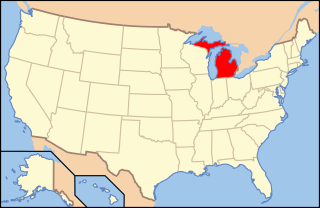
Lesbian, gay, bisexual, and transgender (LGBTQ) people in the U.S. state of Michigan enjoy the same rights as non-LGBTQ people. Michigan in June 2024 was ranked "the most welcoming U.S. state for LGBT individuals". Same-sex sexual activity is legal in Michigan under the U.S. Supreme Court case Lawrence v. Texas, although the state legislature has not repealed its sodomy law. Same-sex marriage was legalised in accordance with 2015's Obergefell v. Hodges decision. Discrimination on the basis of both sexual orientation and gender identity is unlawful since July 2022, was re-affirmed by the Michigan Supreme Court - under and by a 1976 statewide law, that explicitly bans discrimination "on the basis of sex". The Michigan Civil Rights Commission have also ensured that members of the LGBT community are not discriminated against and are protected in the eyes of the law since 2018 and also legally upheld by the Michigan Supreme Court in 2022. In March 2023, a bill passed the Michigan Legislature by a majority vote - to formally codify both "sexual orientation and gender identity" anti-discrimination protections embedded within Michigan legislation. Michigan Governor Gretchen Whitmer signed the bill on March 16, 2023. In 2024, Michigan repealed “the last ban on commercial surrogacy within the US” - for individuals and couples and reformed the parentage laws, that acknowledges same sex couples and their families with children.
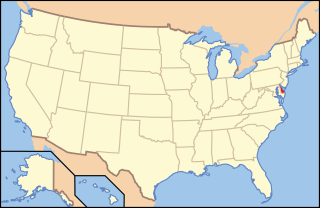
Lesbian, gay, bisexual, transgender, and queer (LGBTQ) people in the U.S. state of Delaware enjoy the same legal protections as non-LGBTQ people. Same-sex sexual activity has been legal in Delaware since January 1, 1973. On January 1, 2012, civil unions became available to same-sex couples, granting them the "rights, benefits, protections, and responsibilities" of married persons. Delaware legalized same-sex marriage on July 1, 2013.
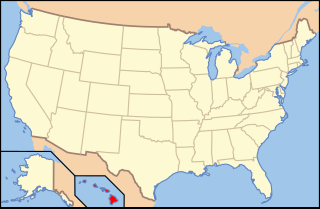
Lesbian, gay, bisexual, transgender, and queer (LGBTQ) people in the U.S. state of Hawaii enjoy the same rights as non-LGBTQ people. Same-sex sexual activity has been legal since 1973; Hawaii being one of the first six states to legalize it. In 1993, a ruling by the Hawaiʻi Supreme Court made Hawaii the first state to consider legalizing same-sex marriage. Following the approval of the Hawaii Marriage Equality Act in November 2013, same-sex couples have been allowed to marry on the islands. Additionally, Hawaii law prohibits discrimination on the basis of both sexual orientation and gender identity, and the use of conversion therapy on minors has been banned since July 2018. Gay and lesbian couples enjoy the same rights, benefits and treatment as opposite-sex couples, including the right to marry and adopt.

Lesbian, gay, bisexual, transgender, and queer (LGBTQ) people in Texas have some protections in state law but may face legal and social challenges not faced by others. Same-sex sexual activity was decriminalized in Texas in 2003 by the Lawrence v. Texas ruling. On June 26, 2015, the Supreme Court of the United States ruled bans on same-sex marriage to be unconstitutional in Obergefell v. Hodges.
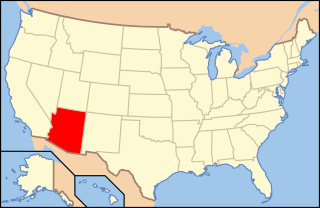
Lesbian, gay, bisexual, transgender, and queer (LGBTQ) people in the U.S. state of Arizona may face legal challenges not experienced by non-LGBTQ residents. Same-sex sexual activity is legal in Arizona, and same-sex couples are able to marry and adopt. Nevertheless, the state provides only limited protections against discrimination on the basis of sexual orientation and gender identity. Several cities, including Phoenix and Tucson, have enacted ordinances to protect LGBTQ people from unfair discrimination in employment, housing and public accommodations.
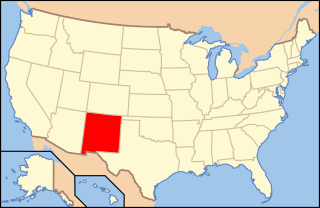
Lesbian, gay, bisexual, transgender, and queer (LGBTQ) people in the U.S. state of New Mexico enjoy the same rights as non-LGBTQ people. New Mexico has seen prominent advances in gay and lesbian rights in recent decades. Same-sex sexual activity has been legal since 1975. Same-sex marriage is legal statewide in New Mexico, as is adoption and access to fertility treatments for lesbian couples. Same-sex couples have had the same rights as heterosexual married couples since 2013. Discrimination on the basis of sexual orientation and gender identity is banned statewide in the areas of employment, housing and public accommodations. Additionally, conversion therapy on minors is prohibited in the state.
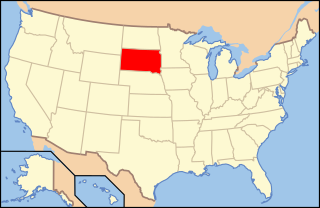
Lesbian, gay, bisexual, transgender, and queer (LGBTQ) people in the U.S. state of South Dakota may face some legal challenges not experienced by non-LGBTQ residents. Same-sex sexual activity is legal in South Dakota, and same-sex marriages have been recognized since June 2015 as a result of Obergefell v. Hodges. State statutes do not address discrimination on account of sexual orientation or gender identity; however, the U.S. Supreme Court's ruling in Bostock v. Clayton County established that employment discrimination against LGBTQ people is illegal under federal law.

Lesbian, gay, bisexual, transgender, and queer (LGBTQ) people in the U.S. state of Kentucky still face some legal challenges not experienced by other people. Same-sex sexual activity in Kentucky has been legally permitted since 1992, although the state legislature has not repealed its sodomy statute for same-sex couples. Same-sex marriage is legal in Kentucky under the U.S. Supreme Court ruling in Obergefell v. Hodges. The decision, which struck down Kentucky's statutory and constitutional bans on same-sex marriages and all other same-sex marriage bans elsewhere in the country, was handed down on June 26, 2015.

Lesbian, gay, bisexual, transgender, and queer (LGBTQ) people in the U.S. state of Mississippi face legal challenges and discrimination not experienced by non-LGBTQ residents. LGBT rights in Mississippi are limited in comparison to other states. Same-sex sexual activity is legal in Mississippi as a result of the U.S. Supreme Court decision in Lawrence v. Texas. Same-sex marriage has been recognized since June 2015 in accordance with the Supreme Court's decision in Obergefell v. Hodges. State statutes do not address discrimination on the basis of sexual orientation and gender identity; however, the U.S. Supreme Court's ruling in Bostock v. Clayton County established that employment discrimination against LGBTQ people is illegal under federal law. The state capital Jackson and a number of other cities provide protections in housing and public accommodations as well.
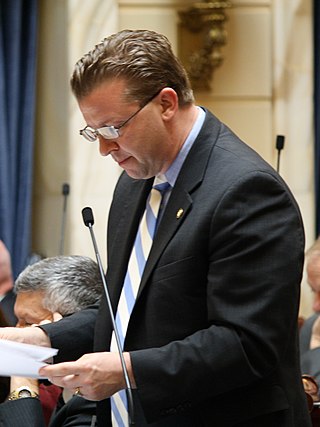
Todd Weiler is a Republican member of the Utah State Senate. He lives in Woods Cross, Utah. Weiler was first appointed to the state Senate in January 2012.
Arizona SB 1062 was an Arizona bill to amend an existing law to give any individual or legal entity an exemption from any state law if it substantially burdened their exercise of religion, including Arizona law requiring public accommodation.
The state of North Dakota has improved in its treatment of lesbian, gay, bisexual and transgender residents in the late 1990s and into the 21st Century, when the LGBT community began to openly establish events, organizations and outlets for fellow LGBT residents and allies, and increase in political and community awareness.

The Equality Act was a bill in the United States Congress, that, if passed, would amend the Civil Rights Act of 1964 to prohibit discrimination on the basis of sex, sexual orientation and gender identity in employment, housing, public accommodations, education, federally funded programs, credit, and jury service. The Supreme Court's June 2020 ruling in Bostock v. Clayton County protects gay and transgender people in matters of employment, but not in other respects. The Bostock ruling also covered the Altitude Express and Harris Funeral Homes cases.
Senate Bill 297 is a 2015 Utah anti-LGBT act that allows for an exemption for individuals, religious officials, religious organizations, and government officers and employees who object to participating to issuing marriage licenses for marriages they object to based on "deeply held beliefs about marriage, family, and sexuality."
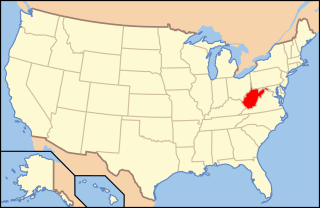
Fairness West Virginia is the statewide lesbian, gay, bisexual and transgender (LGBT) civil rights organization for the U.S. state of West Virginia. Founded in 2009 by Stephen Skinner, the organization is currently headed by Andrew Schneider and is headquartered in downtown Charleston.
References
- ↑ Price, Michelle L. (March 11, 2015). "Utah House passes Mormon church-backed LGBT anti-discrimination bill". LGBTQ Nation. Associated Press. Retrieved March 12, 2015.
- ↑ Goodstein, Laurie (March 11, 2015). "Utah Passes Antidiscrimination Bill Backed by Mormon Leaders". The New York Times. Retrieved March 12, 2015.
- ↑ Catalfamo, Kelly; Price, Michelle L. (March 12, 2015). "Utah governor signs Mormon church backed LGBT anti-discrimination bill". LGBTQ Nation. Associated Press. Retrieved March 13, 2015.
- ↑ Price, Michelle L. (March 6, 2015). "Utah Senate gives speedy approval to LGBT-inclusive anti-discrimination bill". LGBTQ Nation. Associated Press. Retrieved March 12, 2015.
- ↑ "S.B. 296 Antidiscrimination and Religious Freedom Amendments". Utah State Legislature. Retrieved March 12, 2015.
- ↑ Masunaga, Samantha (March 6, 2015). "LGBT anti-discrimination bill passes Utah state Senate". Los Angeles Times. Retrieved March 12, 2015.
- ↑ "After GOP Legislature Passes S.B. 296, UT Gov to Sign Key Protections". Human Rights Campaign. Retrieved 2023-01-02.
- ↑ "Why Utah Is No Utopia for LGBT Equality Despite Progress | News & Commentary". American Civil Liberties Union. 2015-03-19. Retrieved 2023-01-02.
- ↑ "The 'Utah Compromise' Is A Dangerous LGBT Trojan Horse" . Retrieved 2023-01-02.